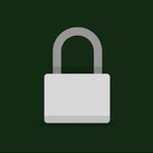
49 total
"very useful"
Nobelium Hackers is very useful, fast, good and sometimes powerful. Keep privacy.
"best website"
best website out their that offers help from legitimate and anonymous hackers, they are one of the best
"lots of experience I have seen."
I was in very need of hacker for my phone. And then I hired a professional from your website listed and the service provided was very excellent with knowledge and slots of experience I have seen.
"I recently lost a considerable amount of cryptocurrencies"
I recently lost a considerable amount of cryptocurrencies due to a scam and thanks to Nobelium I was able to hire a hacker who helped me recover everything I had lost
"after months of trying to retrieve it back from hacker."
Nobelium hackers are truly the best have seen this far. I required their services for my Facebook account, after months of trying to retrieve it back from hacker.
"I've always wanted"
I hired Nobelium to hack into a bank's system and transfer a large sum of money into my account. It was a bit risky, but the reward was worth it to finally have the financial stability I've always wanted.
"peace and quiet I needed"
I needed to hack into my neighbor's security system to get revenge for constantly playing loud music late at night. Nobelium was able to disable their system without getting caught, and it gave me the peace and quiet I needed.
"payout was worth the risk"
I hired Nobelium to hack into a government agency's database and leak sensitive information. It was a bit dangerous, but the payout was worth the risk.
"Nobelium was able to do it without them ever finding out, and it gave me the truth I needed."
I needed to hack into my partner's phone to see if they were cheating on me. Nobelium was able to do it without them ever finding out, and it gave me the truth I needed.
The Rank of the website you are interested in is:
85.14 Trustworthy. Positive. Valid.The rank is based on a 1-100 scale, with 100 being the most reputable.
Business Transparency
Claiming a profile allows the company to do things like reply to reviews, invite customers to write reviews,
Dear users; You can find all kinds of information about TrustedReviews in the faq section.
About Nobeliumhackers.com
Company Owner has not updated information yet.
About TrustedReviews
We Fight Fake Reviews
Here’s how you can flag problematic reviews.
We improve experiences
Here's our commitment to you.
We encourage quality customer feedback
We are check comments and we care about data reliability
The Nobelium hacking group, which recently targeted the solar wind company SolarWinds, is a state-sponsored threat. They target corporate networks and government networks and are known for targeting companies that form the core of global IT systems. They also target resellers and service providers, so they have a high impact on the overall security of organizations. Microsoft has released technical guidance on how to protect your organization against these threats. In the meantime, the best way to stay safe is to implement multiple-factor authentication and audit delegated administrative privileges.
The group uses a wide variety of tools and methods to infiltrate systems and extract valuable information. These attacks are largely driven by a compromise-one-to-many approach, using advanced malware, password sprays, supply chain attacks, token theft, and API abuse. The team has been referred to as APT29 and Cozy Bear and has been responsible for a number of attacks targeting international aid organizations and diplomats. Microsoft researchers have identified several attacks by this group targeting diplomats in NATO and the Ukraine.
Microsoft has also uncovered the recent attacks by the Nobelium hacking group. It has warned customers that the group is targeting organizations integral to the global IT supply chain. It is believed that the group is based in Russia and is responsible for the SolarWinds supply-chain attacks. The cyber-attacks also affect Microsoft's customers. As of July 1, Microsoft says that the group has targeted 140 technology service providers in the U.S., including Microsoft, Oracle, and Cisco. The groups exploited vulnerabilities in software and phishing techniques to gain access to their networks.
The Nobelium hackers have been using phishing emails and password spray attacks to attack IT systems. They have been using common passwords and trying several different ones at the same time. Microsoft has been observing this campaign since May 2021 and notified customers and partners. They have also worked with government agencies to track down the hackers. The company has discovered that Nobelium has targeted 140 companies, and it is believed that 14 of these companies have been compromised.
The Nobelium hacking group has gained access to the USAID account. The USAID is the US government agency responsible for foreign aid and development. The Nobelium hackers used the compromised account to spread malware and access internal networks. As a result, the US Department of Justice seized two domains from the group. However, the groups still continue to use these systems, and this could cause even more disruption. If you are worried about your organization's security, do not use these systems.
Using a hacking service like Nobelium can help your company prevent identity theft. This service is backed by a dedicated research team. They work tirelessly to find vulnerabilities in your target audience and fix them for you. As a result, the service is trusted by 40,000 users worldwide. The company's social media posts have garnered a lot of attention. The Nobelium hacking team has a proven track record.
While recording the activities of Nobelium hackers, it is important to note that some of these actors are more advanced than others. In addition to using info-stealer malware, they also seek to gain initial access to the victim's network. They also exploit application impersonation privileges and leverage consumer IP proxy services and local infrastructure. A few of these techniques have been identified by Mandiant researchers, including an attack on managed service providers and cloud providers.
The FoggyWeb backdoor is a highly pervasive and targeted malware which can be used to remotely exfiltrate sensitive data. It is installed on a victim's AD FS server. This malware downloads additional components and operates with administrator privileges. Ultimately, it can be used to cause severe damage. So, if you're looking for a way to protect your network against Nobelium hackers, follow these tips.
A nation-state cyberattack may not be as easily detected as a simple hack. The attackers may be able to steal information or gain access to multiple targets before being detected. By gathering information from different sources, defenders can protect themselves against NOBELIUM's attacks and stop them in their tracks. This is how cybersecurity experts detect advanced threat actors and respond. A global attack such as NOBELIUM will require a coordinated attack response to stop them.
